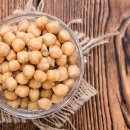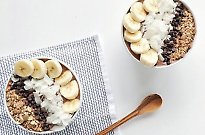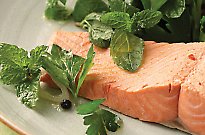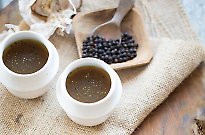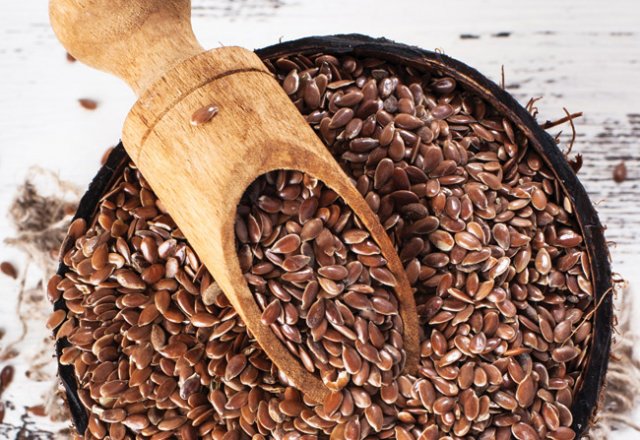
Flaxseed: the world’s richest source of lignans
Flaxseed: the world’s richest source of lignans

Hippocrates, who famously touted “let food be thy medicine and medicine be thy food”, used flax seeds medicinally. And Mahatma Gandhi was quoted as saying: “wherever flax seeds become a regular food item among the people, there will be better health”. So what is it about flaxseeds that makes them such a miraculous superfood? The answer is lignans. Lignans are a type of phytonutrient that play a vital role in the defence mechanisms of plants, protecting them from pathogens and pests.
What are 'lignans'?
Vegetarians have been found to consume about eight times the amount of lignans than omnivores, and vegans have been found to eat even more. This is because ‘phyto’ means plant, hence these lignan phytonutrients are only found in plant foods. The plant that has the most potent concentration of lignans is flax seeds. Flax doesn’t actually contain the lignans themselves, but rather the precursors that are required for the good bacteria in our guts to produce lignans (just one of the reasons why it’s so important to eat probiotic-rich foods or take a probiotic supplement regularly). Lignans are also found in seeds, whole grains, fruits, berries, vegetables and even red wine. Flax seeds, however, have up to 800 times more lignans than any other food. Nothing else even comes close.
The health benefits
Science is beginning to understand the health benefits of lignans. From breast cancer prevention to blood sugar control, the powerful plant nutrients are proving themselves to be a health-promoting addition to your daily diet. For example, clinical trials have shown that lignans may be beneficial in preventing breast cancer and breast cancer metastasis. They have also been shown to improve breast cancer survival rates. Additionally, just one tablespoon of ground flax seeds has been shown to extend the length of a woman’s period by about a day. This equals less periods throughout her lifetime, which means reduced estrogen exposure and hence, reduced risk of developing breast cancer.
But it’s not just breast cancer that lignans have a positive effect on. In another clinical trial, men with prostate cancer were given three tablespoons of flax seeds per day, which resulted in significantly lower cancer proliferation and increased cancer cell death. Another clinical trial showed that men who consumed flax seeds had a significant drop in prostate-specific antigen (PSA) levels – a biomarker for prostate cancer – and a decrease in cellular proliferation rate in men with precancerous prostate changes. Indeed, men in countries where prostate cancer rates are low tend to show higher levels of lignans in their prostate fluid.
Beyond cancer, lignans also help to improve cholesterol and stabilise blood sugar levels, and they’re thought to play a role in reducing the risk of cardiovascular disease and osteoporosis. Lignans in plant foods have even been shown to play a role in reducing pre-menstrual symptoms and improving ovarian function. Even those suffering from hot flushes can benefit from increasing their lignan intake as they scavenge free radicals, which helps to reduce oxidative stress within the body, an imperative process in maintaining good health.
How do we get more lignans into our diet and how much do we need?
Flax seeds will definitely give you more bang for your buck when it comes to increasing your lignan intake. You can buy both golden or brown flax seeds, which are the same nutritionally; however, in order to reap the benefits of flax, you must eat the seeds ground up. Buying them intact, complete with their outer shell cover, is a good idea to protect the delicate flax oil from becoming rancid. Take them home and grind them yourself in a blender, food processor, or spice grinder as necessary.
Keep ground seeds in an airtight container in your fridge for up to three months (non-ground whole seeds will last in an airtight container in the fridge for up to one year). And forget the flax seed oil. Flax seeds have a lot more nutrition in them than the oil because when the oil is extracted from the seeds, valuable nutrients including iron, zinc, copper, calcium, protein, potassium, magnesium, folate, soluble fibre and boron are lost.
Eat at least two tablespoons of ground flax seeds per day. Try them in a smoothie, on top of yoghurt, make your own flax-almond butter, or even use them as an egg replacement when baking. To do this, simply combine one tablespoon of ground flax seeds with two-and-a-half tablespoons of water for each egg that’s called for in a recipe.
Words by Tara Thorpe
NEXT: read about Australian's first sustainble chia farm or browse more food and diet features.

